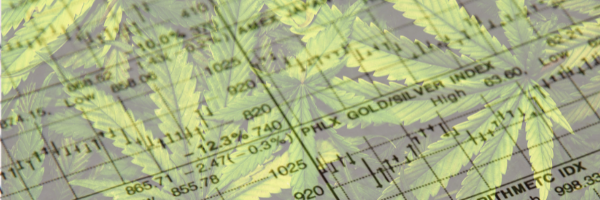
Hemp – The Commodity of the Future
The Hemp Industry was widely used throughout America and the rest of the world before the Marihuana Stamp Act of 1937, a bill that began a tedious road of prohibition around the globe. But as far back as 10,000 years, researchers indicate what they believe is to be the oldest known relic of any industrial commodity; a little bit of hemp fiber.
Hemp vs. Marijuana
Before we can begin to understand the role hemp plays as an industrialized commodity, we should first understand the differences between federally illegal marijuana, also known as cannabis, and federally legal hemp. Hemp and marijuana are essentially the same plant, with one key difference.
Hemp is a non-psychoactive plant used for making clothing, homeopathic remedies, CBD production, and more, containing less than .3% of the psychoactive compound THC. Marijuana has all those same attributes, but the THC levels are typically between 8 to 35%. THC is what many people seek for both medical and recreational purposes.
What Is A “Commodity”?
A commodity is defined by the dictionary as a raw material or primary agricultural product that can be bought and sold. Julie Lerner of Panexchange tells Brian Hoben of the Hoben Law Firm in his podcast, The Hoben Minute, that “when you’re dealing with natural resources, the word commodity is a misnomer. Especially with hemp” Lerner says.
With numerous fluctuating variables and no industry standard, it is hard to put a price on hemp. “Hemp is a commodity in its infancy,” she says, also adding that marijuana is not a commodity, and she doesn’t think it will become one.
Hoben further explains in his podcast his theory that you don’t need cannabis when the marijuana plant is commoditized as industrial hemp since he says hemp can fulfill all the global needs that the cannabis plant can do.
Furthermore, he emphasizes that by making hemp a commodity, farmers and the industry as a whole can flourish by having a sense of stability and the liquidity of commoditizing which allows for market maturation.
A Brief History of Hemp as a Commodity
Civilizations have been using hemp as a commodity as far back as the earliest known man, from Egypt to India and here in North America. That small piece of hemp fiber that archeologists found, is directly related to the sails that brought ships to North America containing hemp seeds from India that later flourished in fertile soil.
For centuries and up until the early 1900s, the hemp industry was booming with high demand for raw material to make into other goods. Our first presidents, including George Washington, were known to grow hemp on their own personal farms. It was later law of the land that all farmers had to grow hemp or face consequences. The first American flag was made of hemp fiber, and the Declaration of Independence and Constitution were written on hemp paper.
Hemp Industry Standards
President Nixon officially declared the War on Drugs by signing into law the Controlled Substances Act of 1970. In an instant, hemp was banned right along with heroin and cocaine despite having zero psychoactive effect. As a result, hemp became illegal to use even in an industrial capacity.
Thankfully, the 2008 Farm Bill removed hemp from the controlled substances list. Since then, the agriculture industry has seen sharp increases in demand for growing hemp. But without standards, the hemp industry cannot depend on pricing or demand to be predictable enough to provide insight into how it will be traded on the stock market.
Since hemp is currently unregulated, there are huge variants from one product to the next, and some companies have even been known to produce fraudulent products with little to no active ingredients they claim on their labeling. Despite being legal, it is still up to independent laboratories to come up with and adhere to self-imposed standards. The Committee D37 on Cannabis was formed in 2017 to develop these industry standards in regard to the plant’s product and processes.
The Hemp Exchange
Other companies, like the Israeli CMTREX, say they are poised to “facilitate the emergence of a transparent and efficient trading ecosystem for the global legal cannabis and hemp markets” according to the website. Panexchange, Julie Lerner’s company, specializes in producing and managing a trading platform with price discovery capabilities bringing greater efficiency to otherwise inefficient markets.
These companies are positioned to lead the hemp industry as the market slowly but surely matures creating a stable market which the federal government has otherwise failed to do so.
Hemp And the Future of Industry
Today countless products are produced with hemp as the main ingredient. From bath bombs with CBD and skincare products to smokable dried ‘buds’ and pre-rolled hemp cigarettes to candy and everything in between. As more states legalize cannabis, time will tell how long before the federal government comes around.
But it is demand for access to secure banking and to be free from the anxiety of federal raids or disruptions of shipping that are what really drive the need for standards that later affect the retail and sales side of the industry.
The one thing standing in the way of hemp being the future leader of commodities is current legislation. But even conservative politicians like John Boehner and Mitch McConnell have begun to realize there’s money to be made in the hemp industry, significantly more profitable than the prison industrial complex.
Aspen Cannabis Insurance is in Denver, CO, and services clients nationwide. We are a family-run business working with multiple insurance carriers to offer our customers the coverage they need at the lowest possible cost. We offer a wide range of personal, auto insurance, commercial and professional insurance to residential and commercial insurance customers enabling the best rates available. Call to speak to one of our insurance advisors and see how painless insurance shopping can be.
